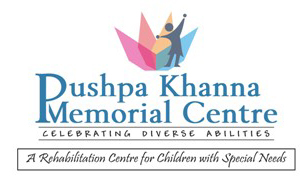Anatomy of a Special Need Caregiver
A WHO Initiative in Kanpur by PKMC
Hope. Hope is a powerful place to remain in. Our best bet and our best chance at a life we all aim to develop in a best possible way. Hope allows us to rise above barriers to defeat a night or a problem that could be impossible to defeat. Born equal we are meant to live equally although our challenges unfold differently. Hope binds us in a way that we can all be sailing in the same boat, yet we can have our unique interpretation of a new horizon. On this core principle of hope, the world has strategized institutions as a means of studying distinctiveness in mankind where research combined with evidence based knowledge, allows them to structure programs that can serve humanity, universally. Now think of the world as one big coexisting society, functioning on codependency as its basic fabric to affirm that all of us, each of us, some time or another, have played the only common role known to us, the role of a caregiver. Decidedly, it is safe to say that there are four kinds of people in the world. Those who have been caregivers, those who are caregivers, those who will be caregivers, and those who will need a caregiver. The catch though lies in a demand from the caregiver who will be at the giving end. This is where World Health Organisation or WHO steps up by formulating and imparting programs around the world especially to centres working with children who need more care than others. Wondering who are these children warranting extra amount of care from their caregivers? In popular opinion they are differently abled or special needs children, who are specially more resilient, specially more creative, specially more empathetic, specially more full of integrity, specially more curious, specially more resourceful, and lastly specially more special. In literature specially-abled individuals can be described as those who have an impairment that produces functional limitations, learning difficulties, physical disability, restrictions in activities or have a social handicap. Factually, almost 52.9 million children affected globally, under the age of 5 call for special needs care not only at special centres, but more at home where they spend a good share of time. The confines of a home is their space of security, communication, learning and growth as well. So, what is special needs care or caring for a special needs person? Special needs caregiver can be best explained as someone who is adept and well trained at addressing differently abled people with an evolved emotional, mental and physical sensitivity that can enhance the affected person’s life to accept it for all its wonderment, and difficulties. If we agree that this caregiving attitude requires special training, automatically our understanding of the need for a program that can train caregivers inside families becomes important to embrace. As caregiving parents or relatives, it’s natural to be anxious in unchartered territory about the lives of their children, but with hope that time, awareness, knowledge and courage, one can sail past obstacles, the journey of evolving together with their special needs child can be empowered, and these little individuals can go on to build firm life skills along with strong emotional space. Therefore, keeping in mind a channel to expel special care for the differently abled children around the world, WHO has planned The Caregivers Skills Training Program, a novel open access parent mediated program for neurodevelopmental disorders and delay, including autism. Developed by WHO with help from Autism Speaks through systematic reviews and expert consultation to meet feasibility criteria, this program is enabled to be implemented at scale in low resources surroundings by non-specialists. The WHO CST program is undergoing field tests in more than 30 countries of the world and India being one of them is proud to have piloted it through Ummeed an NGO which has channeled the program to 12 centres all over India. We at The Pushpa Khanna Memorial Centre, Kanpur, take immense pride in saying that we have got this opportunity to conduct the program at our centre for the specially-abled, which is probably the only facility in the northern region of the country to have got a chance at the WHO CST program. Data says increasing prevalence rates of developmental disorders including Autism Spectrum Disorders or ASD and intellectual disability are a public health priority particularly in developing countries. Although existing mental health care facilities are usually insufficient in low resource settings to address this demand, the WHO CST program has been developed to bridge this treatment gap in low resource settings. At PKMC we believe in cultures that see caregiving as a community responsibility, we aspire to change the quality of life for those differently abled through training parents, skilfully. We believe that underestimating the power of a touch, a smile, a kind word, a listening ear, an honest compliment, or the smallest act of caring can stop someone’s life from taking a turn for the better.



